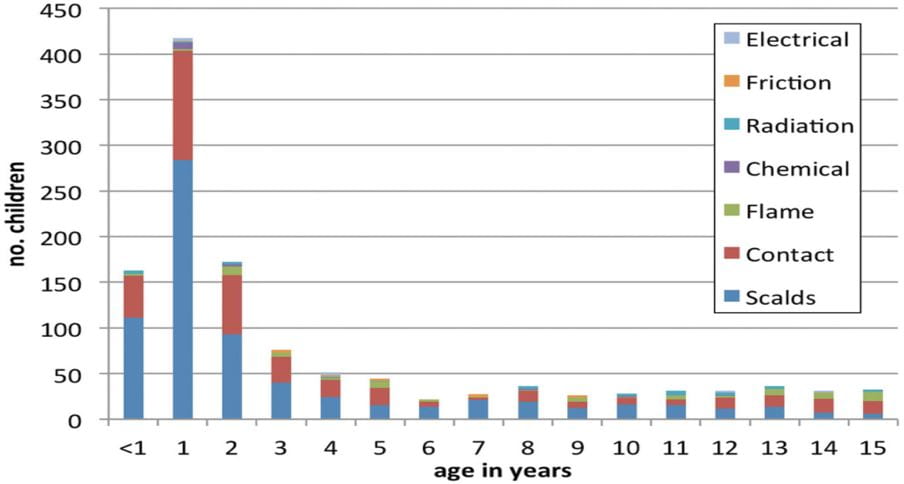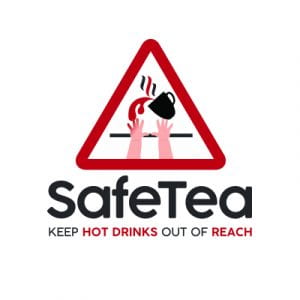Guest blog by Professor Alan Emond, Emeritus Professor of Child Health, Bristol Medical School, University of Bristol
SafeTea is a national campaign which aims to reduce hot drink scalds to young children and promote burns first aid. The launch of the intervention will be on 16 October 2019, National Burn Awareness Day. The target audience is parents, grandparents and carers of children under 5 across the UK.
Primary care centres can participate in the campaign by:
- displaying posters, flyers or videos that are freely available on the SafeTea website.
- by following us on social media @SafeTeaCampaign on Twitter, Facebook, Instagram and YouTube
- by taking the SafeTea pledge.
The key messages of the campaign are to:
- Keep hot drinks away from young children
- Never carry a hot drink whilst carrying a baby
- Never pass a hot drink over the heads of young children
- Make a SafeTea zone: a safe place for hot drinks in your home, out of reach of small children
- First aid for burns is: COOL, CALL, COVER
Background
Thirty babies and toddlers go to hospital with a hot drink burn every day, only 1 in 4 of these children receive the correct first aid when they arrive at the Emergency Department. These injuries can be devastating for children and their families.
Hot drink burns almost always occur at home, and most involve infants and toddlers as they are starting to become mobile and explore the world for themselves. Pulling a hot cup of tea from a surface within in reach is the commonest way that these children are burned. This can happen in a split second and takes parents completely by surprise. The figure below shows that the peak of paediatric burn ED attendances is in the second year of life, when 70% of burns are due to scalds from hot drinks or hot water (blue shading).
Source: Kemp et al 2014
To tackle this public health challenge, the Children’s Burns Research Centre have designed, developed and tested a community-based intervention. A suite of resources have been produced that are ideal for use in primary care centres, by health visitors, children’s centres and all professionals and organisations that work with parents of young children.
SafeTea has now been up-scaled to a national web and social media- based campaign under the guidance of a SafeTea steering group including: the Child Accident Prevention Trust, Children’s Burns Trust, Institute of Health Visiting, British Burn Association, Royal Society for the Prevention of Accidents, National Centre for Population Health and Wellbeing Research.
The SafeTea campaign
SafeTea provides free access to a suite of novel, web-hosted videos and printable materials (posters, a flyer, reach chart, fridge magnet and activity pack) to support GPs and community practitioners in communicating the SafeTea messages. A limited number of printed materials will be available to child health professionals to use to promote the messages with families. Packs of printed materials can be ordered from the SafeTea website.
SafeTea will be launched on National Burns Awareness Day 16 October 2019 and run for three months thereafter. The campaign will emphasise the likelihood and severity of hot drink burns in pre-school children, give prevention and first aid advice and invite parents and carers of young children to share their SafeTea stories and take the SafeTea pledge to raise awareness of hot drink safety at home. The SafeTea campaign will encourage online debate, discussion, downloads and publicise the availability of SafeTea materials to convey SafeTea messages directly to parents and carers of young children.
Get involved!
- Check out SafeTea materials on the website.
- Become a SafeTea supporter and help promote the campaign
- Take the SafeTea pledge
- Follow us on social media @SafeTeaCampaign on Twitter, Facebook, Instagram and YouTube to help keep children safe from hot drinks!
SafeTea is a collaboration with Professor Alison Kemp, Clinical Professor of Child Health at Cardiff University.



